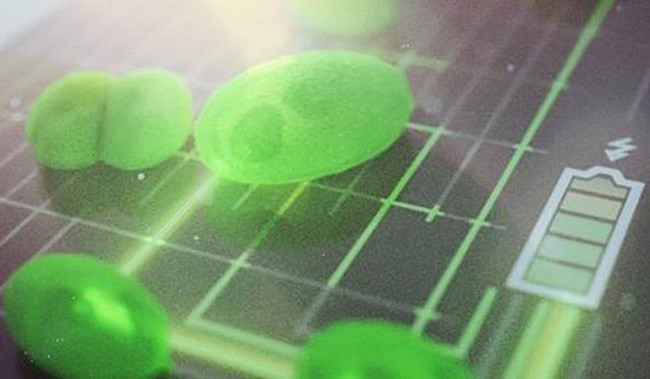Engineers reveal batteries from new algae with many advantages
Researchers at Cambridge University, England have designed an improved fuel cell with algae. This technology improves efficiency five times more than current battery models.
Specifically, there is a new type of battery, biophotovoltaic, or BPV, a solar battery that uses biological mechanisms to convert solar energy into electricity. Photosynthesis of microorganisms such as algae can be used to harness the power of solar energy.
Inside these biological batteries, algae turns sunlight into electricity that is ejected from the battery in the form of an electric current.

This latest technology is described in Nature Energy Magazine - there are two chambers. A chamber contains the conversion of sunlight into electrons, and the second chamber converts electrons into electricity.
Researchers improve ingredients by making algae more efficient. New algae cells release less energy during photosynthesis.
Although five times more efficient than previous models, new technology is still less efficient than traditional solar cells. However, the new BPV model has other advantages, including lower production costs.
Christopher Howe, a biochemist at Cambridge, said: "Although solar cells based on silicon are more efficient than batteries from algae energy, they convert them into electrical energy, But batteries from algae are easy to work with other materials. By separating cells into two components, solar energy converted to microbial electricity can be stored more easily . '
The researchers say the technology could prove particularly useful in rural areas and in less developed countries, where there is no power grid.
"This is a big step in finding alternative, more environmentally friendly fuels," said Paolo Bombelli, a researcher. "We believe these developments will bring the battery-based battery systems closer to reality."
See more:
- How to save battery when surfing Facebook on iPhone
- List of the most current Buffalo battery smartphones by Phone Arena
- Small lithium-ion batteries are equal to sand grains created from 3D printers
You should read it
- ★ What is Protect Battery on Samsung phones? Should I use it?
- ★ Don't, and exactly, never leave your phone down to 0% battery!
- ★ 8 ways to extend the battery life of Samsung Galaxy phones
- ★ How to check whether spare batteries are allowed to be carried on board
- ★ What is battery? What types are available?